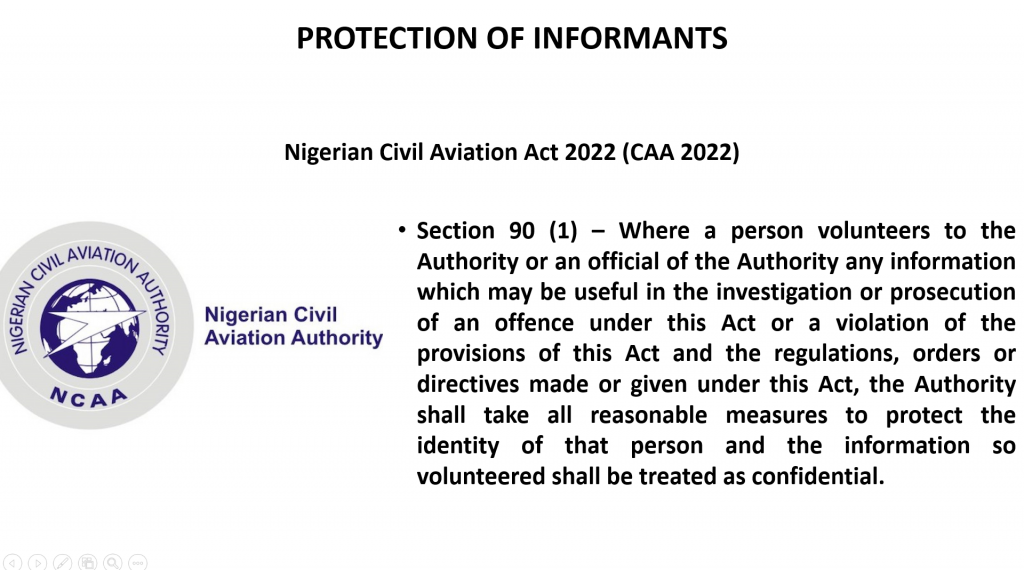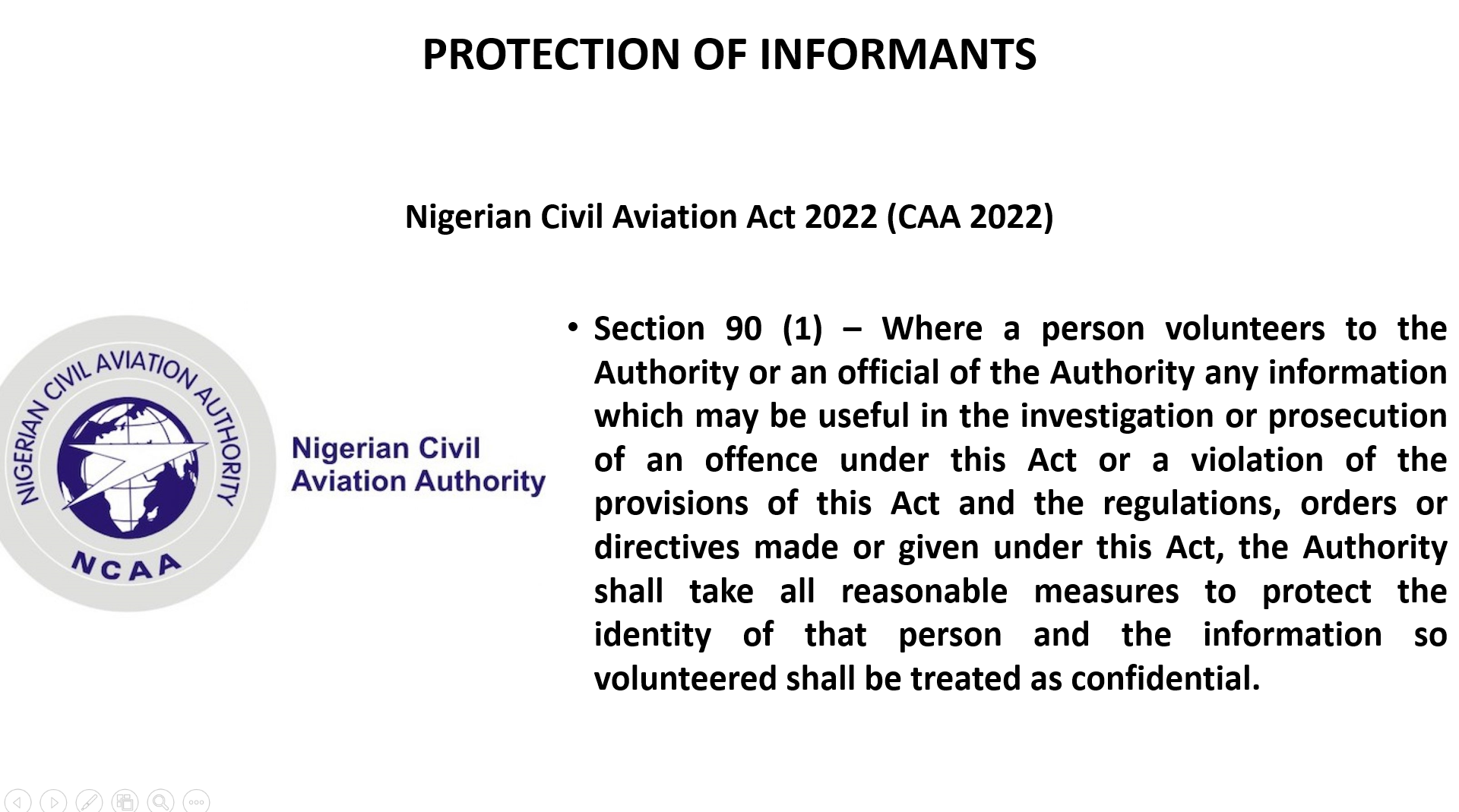linkedin.com/in/shadrachswantekambai

Before this measure, numerous aviation experts held reservations about sharing information with authorities. However, in the intricate and safety-focused realm of aviation, the importance of sharing information is immeasurable. Those who bravely come forward to impart their professional insights to aviation regulatory bodies play an essential role in safeguarding the millions of passengers and personnel. Their readiness to reveal crucial details concerning safety issues or regulatory discrepancies is pivotal in preventing possible disasters. The civil aviation authority in Nigeria has taken proactive steps to foster an environment where all individuals and entities willing to share information feel secure in doing so without apprehension.
Reasons Why Informants Should be Protected
- Safety and Security: Informants often provide critical information about potential threats, safety hazards, or illegal activities within the aviation sector. Safeguarding their identity encourages individuals to come forward without fear of reprisal, enabling the industry to address security concerns and ensure passenger safety.
- Prevention of Criminal Activities: Informants play a pivotal role in preventing criminal activities such as smuggling, terrorism, or other illicit actions within the aviation industry. Protecting their anonymity encourages others to come forward, aiding in the prevention and detection of such activities.
- Maintaining Integrity and Accountability: Protecting informants supports the industry’s commitment to integrity and accountability. Whistleblowers or informants often highlight areas where regulations, safety protocols, or ethical standards might be compromised. Protecting their identities encourages transparency and accountability within the industry.
- Enhanced Regulatory Compliance: Informants often provide critical insights into regulatory non-compliance or safety breaches. By safeguarding their identities, regulatory bodies and industry stakeholders can address these issues more effectively, ensuring compliance with aviation standards and protocols.
- Improving Organizational Culture: Encouraging a culture that values and protects informants fosters an environment where individuals feel comfortable reporting concerns without fear of retaliation. This helps in fostering a culture of openness, safety, and continuous improvement within aviation organizations.
- Fixing Aviation Surety Bonds in Nigeria
- When Safety Meets the Clock: Why Airlines Can’t Afford to Gamble
- NSIB Hosts 12th BAGAIA Commission Meeting in Abuja
- ✈️ How Commercial Airlines Boost Nigeria’s GDP
- Error Management Techniques in Flight Operations
In essence, protecting those who share vital information with aviation regulatory authorities is not just a matter of ethical responsibility but a necessity for continuously enhancing safety standards. Their contributions are invaluable, and ensuring their safety and security is pivotal in maintaining the high level of safety that the aviation industry strives for.






0 Comments